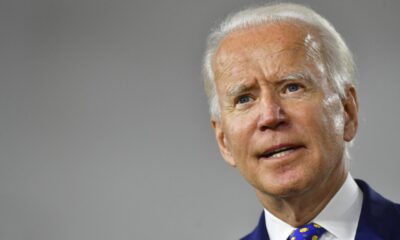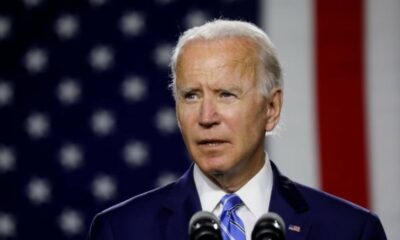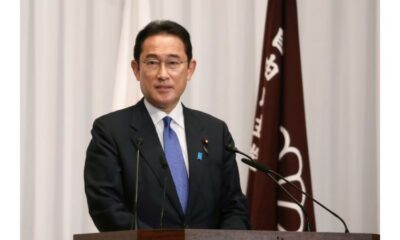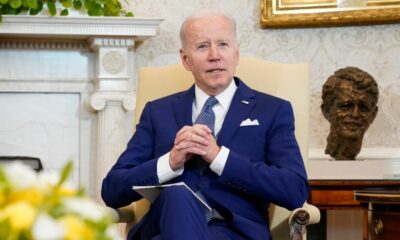Science
The United States and Japan agreed to work to put the first Japanese astronaut on Moon
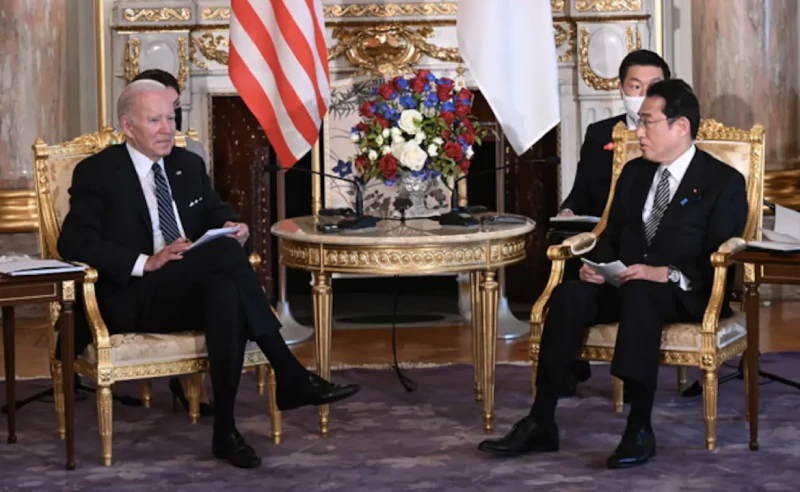
The United States and Japan agreed to work to put the first Japanese astronaut on the moon, joined by an American astronaut, as the long-time partners develop a partnership aimed at space projects at countering China.
No non-American has ever landed on the lunar surface, and Japan has previously said it desires to achieve a Moon landing before this decade’s end.
The two countries said in a joint statement they would team up on human and robotic Moon missions “including a shared ambition to see a future Japanese astronaut on the lunar surface”, and to sign an implementation agreement this year.
Following a meeting on Monday (May 23) in Tokyo between US President Joe Biden and Japanese Prime Minister Fumio Kishida, the nations likewise said they “are committed to a Japanese astronaut opportunity on the Gateway, a human outpost in the lunar vicinity, as part of expanding Artemis collaboration”.
The joint lunar exploration development integrates with the Artemis project, a US-led work to return astronauts to the Moon and ultimately send humans to Mars.
President Joe Biden, after his first face-to-face meeting with Japan’s Prime Minister Fumio Kishida in Tokyo, said the countries will cooperate in the US-led Artemis program to send humans to the Moon, and later to Mars. Biden said he was “excited” about the collaboration, including for the Gateway facility, which will orbit the Moon and offer help for future missions.
US-Japanese space collaboration “is taking off, looking towards the Moon and to Mars”, Mr. Biden said at a press conference with Mr. Kishida.
“I’m excited about the work we will do together on the Gateway Station around the Moon and look forward to the first Japanese astronaut joining us in the mission to the lunar surface, under the Artemis program,” he added.
Japan’s domestic space program focuses on satellites and probes, so Japanese astronauts have turned to the US and Russia to go to the International Space Station.
Yet, space organization JAXA is hoping to revitalize its ranks, last year launching its first recruitment of new astronauts in 13 years.
It lifted the requirement that candidates have a science degree and encouraged women to apply because each of the seven of the country’s current astronauts is men.
The US and Japan are looking to work all the more intently on space exploration after Nasa authorities cautioned of developing strains between Washington and Beijing. Monday’s news comes amid the competition to begin separating possibly hundreds of billions of dollars of resources on the Moon and somewhere else.
The Moon might contain a lot of helium-3, an isotope possibly helpful as an option in contrast to uranium for nuclear power plants since it isn’t radioactive. Specialists believe 5,000 tons of coal could be supplanted by around three tablespoons of helium-3.
The geopolitics of space mirrors the competition between the US and its partners against China and Russia. The world’s top superpowers have been attempting to agree upon a common set of rules to govern the next generation of space activity.
Japan and South Korea are among 19 countries that have consented to help the Artemis Accords, a non-legally binding set of principles for exploring the Moon, Mars, and then some.
Yet, China and Russia have led opposition to the agreements. They are jointly promoting an elective project on the Moon that they say is available to all other countries: the International Lunar Research Station.
Japan itself has one of the world’s most advanced space programs, and in 2020, the Japan Aerospace Exploration Agency prevailed about bringing back material from an asteroid using the unmanned Hayabusa2 probe.
Around a dozen Japanese nationals have experienced space travel, putting the nation generally even with China, Germany, and France, but far behind the US and Russia in global rankings. The country’s space budget jumped by more than 20% to around 450 billion yen (S$4.85 billion) last year.
The trouble between the US and China on space exploration is especially hazardous in an era when the cosmos is becoming more crowded, and billionaires, for example, Elon Musk and Jeff Bezos are progressively launching satellites to dive into commercial opportunities.
Japanese e-commerce billionaire Yusaku Maezawa spent time on the International Space Station last year in preparation for becoming the first private passenger on a planned trip around the Moon on Musk’s SpaceX in 2023. No Japanese residents have really landed on the Moon.
Last month, the National Aeronautics and Space Administration (Nasa) directed tests for the launch of Artemis I, a fully robotic mission to the Moon – the first since Apollo 17 of 1972.
China is quickly moving towards a goal of matching US capabilities. China is the only country to work on its space station, and last year became just the second country after the US to land a rover on Mars.
US legislation first passed in 2011 keeps Nasa from most collaborations with its Chinese partner, and the US has blocked China from participating in the International Space Station – a move that essentially prompted Beijing to construct its own.
-

 Business2 weeks ago
Business2 weeks agoNayef Doleh Examines International Humanitarian Fundraising Strategies
-

 Business3 weeks ago
Business3 weeks agoHow Black Banx is Redefining Global Banking Strategies in 2025
-

 Business2 weeks ago
Business2 weeks agoHow to fill MSME Form 1? Step-by-Step Guide
-

 Tech4 weeks ago
Tech4 weeks agoHow to Switch Between Microsoft Teams and Skype, How To Export Messages, Files, and Contacts from Skype Before It Shutting Down
-

 Business4 weeks ago
Business4 weeks agoPurpose of the AIRdiamond Project
-

 Tech3 weeks ago
Tech3 weeks agoMicrosoft Teams to End SMS Messaging Feature Support for Android Phones and Switch to Phone Link App as Alternative
-

 Education3 weeks ago
Education3 weeks agoSchool Of Odd Thinkers – Think Odd, Learn a lot, and Earn a lot
-

 Education3 weeks ago
Education3 weeks agoThe Power of Differentiated Instruction: Patrick Granfar Discusses Its Impact on Student Learning

